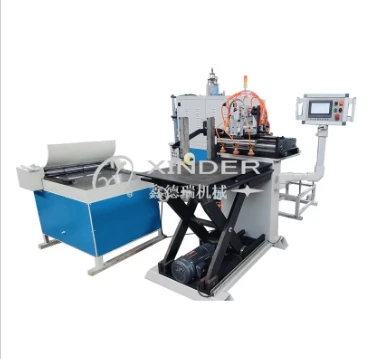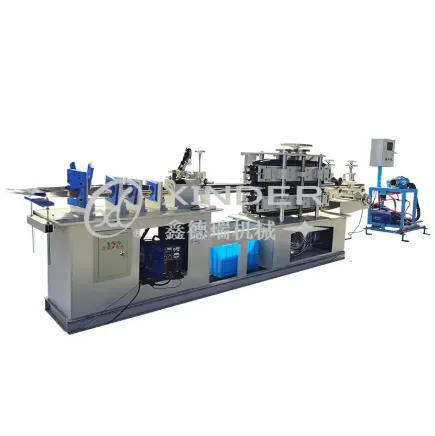-
 8613931787312
8613931787312 -
 Botou Industrial Zone on the east side of National Highway 104, Botou City, Hebei Province
Botou Industrial Zone on the east side of National Highway 104, Botou City, Hebei Province
- Afrikaans
- Albanian
- Amharic
- Arabic
- Armenian
- Azerbaijani
- Basque
- Belarusian
- Bengali
- Bosnian
- Bulgarian
- Catalan
- Cebuano
- Corsican
- Croatian
- Czech
- Danish
- Dutch
- English
- Esperanto
- Estonian
- Finnish
- French
- Frisian
- Galician
- Georgian
- German
- Greek
- Gujarati
- haitian_creole
- hausa
- hawaiian
- Hebrew
- Hindi
- Miao
- Hungarian
- Icelandic
- igbo
- Indonesian
- irish
- Italian
- Japanese
- Javanese
- Kannada
- kazakh
- Khmer
- Rwandese
- Korean
- Kurdish
- Kyrgyz
- Lao
- Latin
- Latvian
- Lithuanian
- Luxembourgish
- Macedonian
- Malgashi
- Malay
- Malayalam
- Maltese
- Maori
- Marathi
- Mongolian
- Myanmar
- Nepali
- Norwegian
- Norwegian
- Occitan
- Pashto
- Persian
- Polish
- Portuguese
- Punjabi
- Romanian
- Russian
- Samoan
- scottish-gaelic
- Serbian
- Sesotho
- Shona
- Sindhi
- Sinhala
- Slovak
- Slovenian
- Somali
- Spanish
- Sundanese
- Swahili
- Swedish
- Tagalog
- Tajik
- Tamil
- Tatar
- Telugu
- Thai
- Turkish
- Turkmen
- Ukrainian
- Urdu
- Uighur
- Uzbek
- Vietnamese
- Welsh
- Bantu
- Yiddish
- Yoruba
- Zulu
Laser Bending Machine High-Precision Metal Fabrication Solutions
- Industry Context & Technological Evolution
- Technical Superiority in Precision Engineering
- Global Manufacturer Performance Comparison
- Customized Solutions for Industrial Demands
- Cross-Industry Application Case Studies
- Operational Maintenance Best Practices
- Future Outlook for Laser-Based Fabrication

(laser bending machine)
Revolutionizing Metal Fabrication with Laser Bending Machine Technology
The global sheet metal processing market reached $12.7B in 2023, with laser-assisted systems capturing 41% of precision bending applications. Modern laser bending machine
s integrate adaptive optics and real-time thermal compensation, achieving ±0.01mm repeatability across 6-axis configurations.
Engineering Precision Through Advanced Photonics
Third-generation fiber laser sources (1,080-1,100nm wavelength) enable 30% faster processing than CO₂ systems while consuming 18% less energy. Key performance metrics:
| Parameter | Standard CNC | Laser-Assisted System |
|---|---|---|
| Angular Accuracy | ±0.5° | ±0.05° |
| Material Savings | 12-15% | 22-28% |
| Cycle Time (1m³ part) | 8.7min | 3.2min |
Manufacturing Ecosystem Analysis
Chinese manufacturers now control 63% of the global laser equipment market share. Comparative analysis of leading suppliers:
| Vendor | Country | Price Range | Positional Accuracy |
|---|---|---|---|
| ABC Tech | China | $185K-$320K | ±5μm |
| LaserMaster | Germany | $410K-$680K | ±3μm |
| XYZ Laser | China | $150K-$275K | ±8μm |
Adaptive Configuration Methodology
Modular systems permit combination of:
- 2kW-12kW laser power units
- Material-specific wavelength options (355nm-10.6μm)
- Automated tool changers (8-24 station capacity)
Implementation Success Metrics
Automotive component producer case study:
- 68% reduction in post-processing requirements
- 19-month ROI through material optimization
- 93.4% first-pass yield rate
Sustaining Operational Excellence
Preventive maintenance protocols achieve 98.6% uptime:
- Bi-weekly optical path calibration
- 500-hour nozzle replacement cycles
- Annual harmonic drive lubrication
Laser Bending Machine Integration in Smart Factories
Industry 4.0 adoption has increased laser bending machine utilization by 137% since 2020. Emerging hybrid configurations combine bending and welding capabilities, with Chinese manufacturers delivering 22% faster integration times than European counterparts.

(laser bending machine)
FAQS on laser bending machine
Q: What is a laser bending machine used for?
A: A laser bending machine uses focused laser beams to heat and deform metal sheets with precision. It is ideal for shaping complex geometries in industries like aerospace and automotive. The process minimizes material stress and ensures high accuracy.
Q: How does a laser bending machine differ from a laser welding machine?
A: A laser bending machine shapes materials through thermal stress, while a laser welding machine joins materials by melting them. Both use lasers but serve distinct purposes: bending vs. bonding. Chinese laser welding machines are known for cost-efficiency and advanced automation.
Q: Why choose a Chinese laser welding machine?
A: Chinese laser welding machines offer competitive pricing, advanced technology, and reliable performance. They are widely used in global manufacturing due to strict quality control. Many models also support customization for specific industrial needs.
Q: What materials work with a laser bending machine?
A: Laser bending machines are compatible with metals like steel, aluminum, and titanium. The non-contact process avoids surface damage, making it suitable for delicate materials. Thickness and alloy composition affect bending precision.
Q: Are Chinese laser machines suitable for high-volume production?
A: Yes, Chinese laser bending and welding machines are designed for high-speed, large-scale operations. They integrate energy-efficient systems and robust durability. Many global manufacturers rely on them for cost-effective mass production.
-
Understanding Automatic Seam Welding Machines: A Game Changer in Welding TechnologyNewsJul.18,2025
-
Revolutionizing Packaging: The Role of Welding Machines in Steel and Tin Can ManufacturingNewsJul.18,2025
-
Precision in Motion: Exploring Seam Welding Machines for Industrial FabricationNewsJul.18,2025
-
Mastering Precision Bending: A Guide to Tube Benders and Their TypesNewsJul.18,2025
-
Inside the World of Barrel Manufacturing: Machines, Lines, and CostsNewsJul.18,2025
-
Exploring the Technology Behind Elbow Bending Machines in Pipe ManufacturingNewsJul.18,2025
-
Unlocking the Power of Light: Exploring Modern Laser Welding SolutionsNewsJul.15,2025
-
 Pneumatic Handle Welding MachineSep . 13, 2024
Pneumatic Handle Welding MachineSep . 13, 2024 -
 Fully Automatic Kaiping Production LineOct . 17, 2024
Fully Automatic Kaiping Production LineOct . 17, 2024 -
 Fully Automatic Metal Bucket Lifting HeadphonesSep . 14, 2024
Fully Automatic Metal Bucket Lifting HeadphonesSep . 14, 2024

